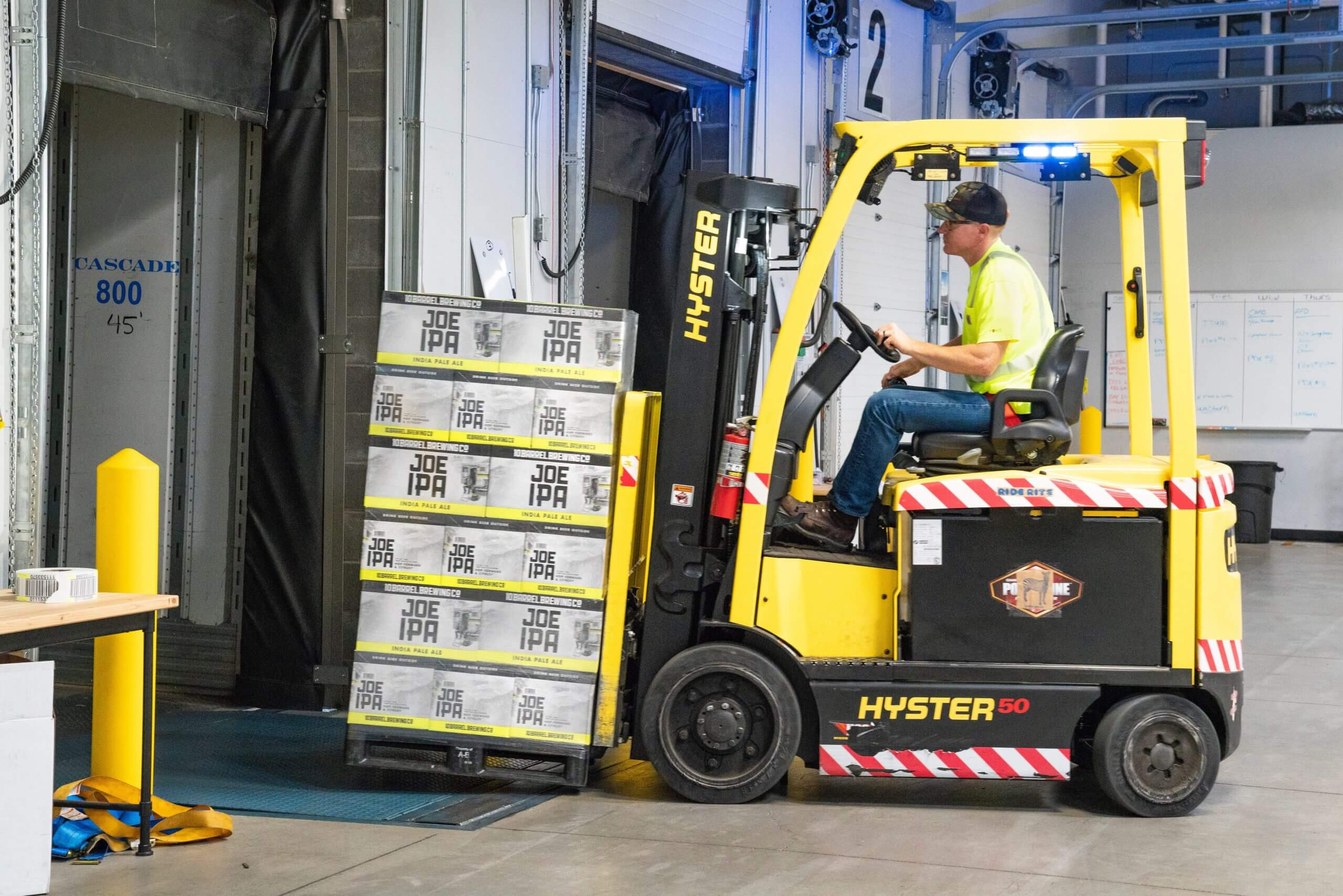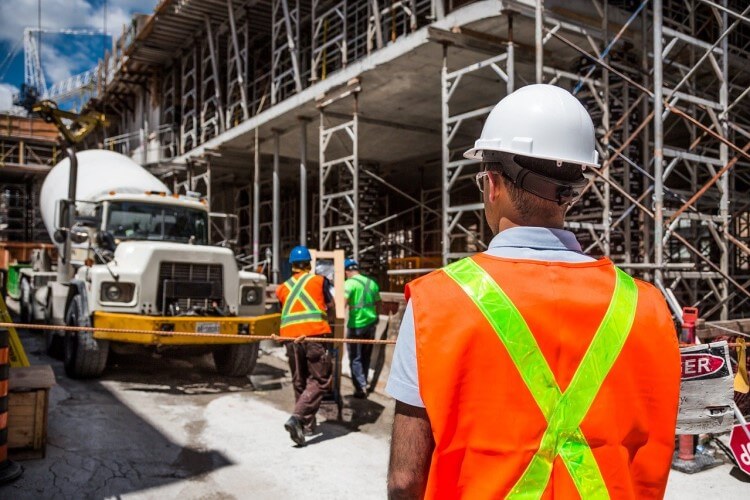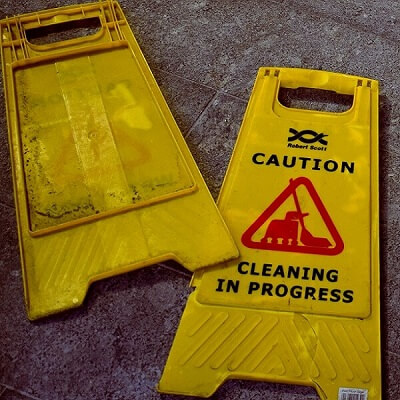It is estimated that more than 6.8 million people in the UK workforce are classified as Lone Workers. These are individuals who are often required to work by themselves, with little close or direct supervision. Extra steps may need to be taken to ensure their safety. To help you identify which of your employees are lone workers, we have compiled this list of lone worker examples.
Types of Lone Workers
This post looks at 8 lone worker examples, allowing you to determine who in your workforce may benefit from additional support. More information on what a lone worker is can be found in our blog post: What is a Lone Worker?
1. Cleaners
Though you may have a team of cleaners in your employment, many can be considered lone workers. This applies whether they’re working domestically or commercially. It is not unusual for two cleaners on a site to be working on complete opposite ends of a building. Therefore, they may find themselves in a position where they cannot immediately support each other.
Your cleaners may work during what are classed as “unfriendly hours”. This is when other staff are either yet to begin their shifts or have clocked out for the day. As such, they will not have people to go to for help should an incident occur.
Furthermore, cleaners face various hazards in the workplace. These can include chemicals and physical strain. Slips, trips, and falls are amongst the most common causes of accidents, and are a high risk when washing floors.
2. Social Workers
Social workers are often required to make house visits as a part of their day-to-day job. This allows them to see first-hand the type of support a family or an individual may require. Whether supporting a family with a troublesome child, or an individual on probation, not only are your social workers often visiting them alone, but it cannot be guaranteed that their clients are always in a receptive mood.
As lone workers, a social worker may also be required to stay late at the office to complete their paperwork. They may still be at their desk even after all their colleagues have gone home. Much as with cleaners, should an incident occur, they may be left in a position where there is no one to help them.
A report by Community Care indicated that 9 in 10 social workers have suffered abuse, assaults, and threats whilst carrying out their jobs. In these situations, it may not always be possible for your staff to pick up a phone and call for help; lone alarms could make all the difference.
3. Security Guards
Your security teams are not always working in a team, and smaller sites may only have one or two on duty at any one time. As such, security roles make it onto our list of lone worker examples. If your premises are more remote, such as a construction site or a warehouse, they’re also more likely to be isolated from aid.
You may have CCTV systems in place to watch their backs, or have another member of staff at the end of a radio, but if problems arise it often comes down to your workers to address the situation. Many security staff are also required to work during the aforementioned “unfriendly hours”, which can lead to issues of overtiredness. This can, in turn, increase the likelihood of human error.
Security workers have to deal with the same “mundane” risks as other workers, such as slippery floors, trip hazards, and damaged equipment. They are also more likely, unfortunately, to be confronted by aggressive individuals.
4. Maintenance Workers
Workers such as electricians and plumbers also rank among the millions of lone workers operating across the UK. It is not often that two of your staff will attend the same location for a job. As a result, your workers will be alone more often than not. Sometimes they may have to operate in unfamiliar areas.
Due to the nature of the jobs, maintenance workers are always putting themselves at some degree of risk. Electrical cables may cause shocks, water leaks may lead to slippery floors, and of course a combination of the two can be lethal.
This may seem like alarmist thinking, but these are risks that can never be underestimated. They may also render a worker incapable of seeking help. Though the client may be in the vicinity, sometimes they may not be aware either. In rare cases, the client themselves may be the source of a problem. In these situations, it may be beneficial to equip your workers with a GPS-fitted alarm.
5. Factory Workers
Not all factory workers are part of a team, as there are so many different jobs that need to be done around the site. We know that you can’t always spare the individuals to support them. Your warehouse operatives, in particular, may find themselves isolated whilst they are retrieving a particular consignment of goods from the shelves. This qualifies them for inclusion on our list of lone worker examples.
It is particularly important that lone workers in this environment are properly trained and adequately protected. Considerable attention should be given to risk assessment. A lack of supervision increases the need for Health and Safety regulations to be followed.
Forklift drivers, in particular, may find themselves required to stack goods without staff nearby. They are a prime example of lone workers. Unfortunately, forklift accidents happen across the UK on an almost weekly basis, with 42% of fatalities caused by the individual being crushed.
6. HGV Drivers
There are over 320,000 HGV drivers in the UK, and they are probably one of the more obvious lone worker examples. Most drivers operate on their own, apart from when loading and unloading. We even listed this job as one of our Top 5 Most Dangerous Jobs in the UK.
As well as suffering from the fatigue of driving, which can lead to crashes, HGV drivers are often targeted by criminals. These criminals are interested in stealing valuable goods that are transported across the country. Sometimes, these criminals are interested in hijacking the vehicles themselves. It is then the drivers who suffer the consequences.
It is not only criminal activities that put these lone workers at risk, however. Around 2,000 workers are seriously injured every year as a result of falls from their vehicle, often when moving goods. Due to their need to travel, this is another example of a role where we would recommend the use of our GPS-fitted alarms.
7. Real Estate Agents
Did you know that real estate agents also count as lone workers? Perhaps not so much whilst in the office, but when it comes to showing clients around the properties you are selling, more often than not it is just the agent and the prospective buyer.
Such an arrangement can mean that they are the first to be affected by any problems in the property. Also, as it is a customer-facing job, the agent is dealing with a client, or perhaps clients, on their own. Though this is usually a safe enough situation, you cannot assume that everyone they meet is going to be of sound mind.
This may sound like an extreme case, but you can never assume that your agents will always be safe. An alarm system may prove useful, just in case.
8. Laboratory Workers
In some workplaces, laboratory workers can count as lone worker examples. It may be that they are writing up some reports on their own, but it could also be that they are handling hazardous materials. It could perhaps be that they are simply cleaning up, but even this can be risky.
Health and safety measures should be strictly adhered to in a laboratory environment – that much goes without saying – but sometimes accidents do happen. Most laboratories will have automated alarm systems already in place for spills or fires, but there is no harm in having a back-up.
Your laboratory workers will be sure to appreciate the extra security an easy-use system can provide.
Read “Lone Workers: The Ultimate Guide” for more information on lone workers.
How to Support Your Lone Workers
It’s impossible to be ready for everything, but it certainly helps to have redundancies in place just in case things go wrong. We know that the safety of your workers is one of your top priorities. Workplace injuries cost the UK millions every year.
Our Lone Alarms could just be the system you’re looking for. At the press of a button, a call is sent to our 24/7 Monitoring Centre, where our professional Response Team then assess the situation. They will notify all selected contacts, as well as the Emergency Services when necessary.
Lightweight, durable, and water- and dust-resistant, these alarms are ideal no matter where your staff are working. Easy to recharge, and fitted with precise GPS positioning, your workers need never worry about being isolated from aid again, making the device ideal for those who travel for work.
They also come fitted with a fall detector, so even if your workers are incapacitated – though of course we hope they’re not – they can still receive all the aid they need.
For peace of mind for you, your workers, and their families, find out more here, or call our dedicated team on 0800 03 08 222.
Editor’s Note: This article was updated on 15th November 2023 to reflect current information.












